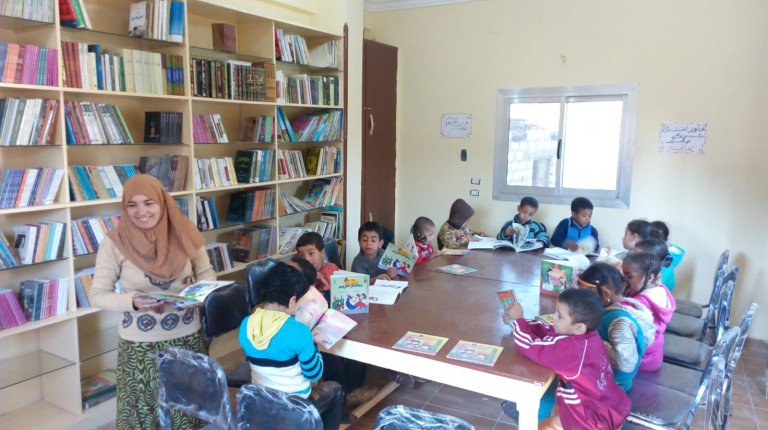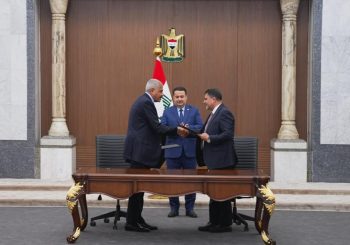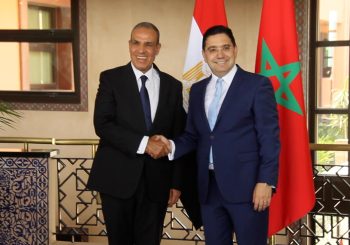By Nada Deyaa’
Far away from the modernity of Cairo, in a small village located named Al-Ma’abda in the Assiut governorate, residents suffer from a lack of healthcare services and quality education. The village, located two hours away from the center of Assiut, is considered one of the poorest in the area. With a population of 100,000 and only one secondary school, a lack of access to knowledge is a fact of life for most residents.
As most parents are concerned with the struggle to provide their families with the essentials – edible food and potable water – the idea of developing cultural knowledge or nurturing talent is passed over by many families in Al-Ma’abda. However, while most are labouring to improve their standard of living, a group of young men decided to build the first library in the village to compensate for the role of insufficient schooling in the area.
“We believe we are forgotten and neglected by the government,” said Ayman Attia, founder of the library. “So we must either fight to teach ourselves or else surrender to darkness and ignorance.”
The library aims to provide young people with educational books for their studies as well as novels to enrich their imagination and cultural awareness. “None of the schools in the village have a library; if a student needs further information or to do research, he would have to travel for two hours in order to reach to the nearest library in Assiut,” Attia explained.
When Attia and his friends first told people about their idea, they were surprised by the amount of support they received: “As much as our village needs financial support, we also need to acquire knowledge.”
Even though they started out with no money, the support and volunteering offered by the villagers more than made up for any funding they might have needed.
“We were surprised to find workers volunteering to decorate the library, all for free,” Attia recalls with a smile.
“This place is as holy as a mosque, we do our work in it for free,” one of the volunteering workers told him.
Some parents volunteered old books, others donated money, and others still took responsibility for providing lunch for the workers decorating the library. Within two months, the library was ready to welcome readers, with 2,000 books covering many different fields of interest.
“Most of the visitors are between the ages of six and 18,” said Attiya. “The children choose illustrated books, while older people choose books about religion and human development.”
There is a huge influx of readers to the library daily, which indicates to Attiya that people needed an opportunity to enable them to be well educated and culturally aware.
“We hope to have 10,000 books by the end of this year in order to encourage even more people to read,” he concluded.






Comments (0)